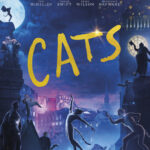Fight, Dream, Hope, Love
Director
Tom Hooper
Starring
Hugh Jackman
Russell Crowe
Anne Hathaway
Amanda Seyfried
Les Miserables starts with the paroled release of convict, Jean Valjean [Jackman] under the warning that he will be watched by his former master, the unwavering lawman, Inspector Javert [Crowe]. Life after imprisonment is difficult for Valjean, scorned by the public and moved along by employers, he eventually finds himself at the doors of a church. The bishop takes him in and feeds him. Seizing the opportunity to make a quick getaway, Valjean pilfers the silverware and absconds in the night. Naturally, he is caught and brought before the bishop, who explains that he gave Valjean the items as a gift. The bishop then claims in doing this, he has bought the convict’s soul for God. Valjean, overwhelmed by this charity vows to make amends, using the money to reinvent himself. Several years later, we learn that Valjean is the mayor of a small village and a successful factory owner. One of his employees, Fantine [Hathaway], is discovered to have bore a young child out of wedlock. The shame and potential scandal leads to her firing but Valjean is preoccupied with the arrival of Javert, who has been posted in town on another matter. Fantine slips into desperation and despair and eventually sells both her hair and teeth before selling her body. Valjean learns that her fate is indirectly his fault and vows to the dying Fantine to take care of her child, Cosette. Javert surmises Valjean’s true identity and continues to pursue him. The story skips ahead, culminating in the June Rebellion (not the French Revolution), Cosette’s fate, Valjean and Javert’s rivalry and a group of students who speak out against the establishment.
As musicals are such a rarity these days, the novelty that a well-known actor can sing is enough to merit attention; unfortunately, this seems to cloud the overall performance. In this case, everyone does a spectacular job. Hugh Jackman has always been a very passionate actor and his roles over the years have more than proved his range as a thespian but he ultimately comes from a theatrical background. The fact that he can command a production of this scale and still manage to belt out powerful ballads before moving onto a gentler piece shouldn’t be that surprising – impressive, yes but not surprising. Equally, Anne Hathaway’s mother was a stage and musical regular, so her abilities should come as no surprise. Then there’s Russell Crowe, who people seem to have made their minds up about before seeing the film. Granted, Crowe’s rendition of Javert does not project the sheer operatic bravado of the stage production but I felt his more sombre, soulful take to be equally noteworthy. If anything, the real problems with the characters stems from the musical, which only fully develops select individuals.
First and foremost this is a musical and while I don’t believe ‘musical’ to be a genre type, it is certainly a stylistic technical type. So if you’re not a fan of musicals or the operatic style of acapella singing through certain lines rather than talking, you may find this jarring and unusual. On the other hand, it may sway the undecided and introduce them to a very different storytelling method. Either way, Les Miserables is an adaptation of one of the most successful stage musicals ever and as such, the majority was always going to be kept intact. Where cinema really thrives, leaving its board-treading cousin behind, is visual scope and scale and this film is chock full of production value, glorious sets, costumes and a sprawling, living, breathing nineteenth century France. To say this movie is a wondrous treat for the eyes is a bit of an understatement. The combination of Hooper’s distinct directorial style and flare for dirty, grimy period realism makes for one of the best depictions of life in squalor rivalling that of Perfume. The credibility of the setting goes a long way to secure the credibility of the continual, almost uninterrupted singing. And it’s the supposedly controversial decision to record the cast singing on-set, rather than miming to pre-recorded takes that really helps. Detractors will claim this hinders the potential quality of the performances and does a disservice to the songs themselves but with the actors incorporating the sheer emotional immersion of singing and acting, what we’re given is something powerful and moving but also unique.
As it exists, this film is an exceptional adaptation of the musical but in turn it inherits all the mistakes, making it a terrible adaptation of the novel. As such, the story’s focus changes from the overarching themes that the poor will always suffer, society allows women to fall into ruin and children are abused and underestimated to a simple love story with a neat ending. It’s called Les Miserables for a reason. Hounding, suffering, doubt, misery, squalor and the horrors man is willing to commit unto itself are the issues that should be rattling in your skull at the end of the story, not “Aww that was beautiful. What a wonderful tale.” No! Wrong! It’s a fucking miserable existence and you should be glad you don’t have to endure it yourself. But this is an unavoidable complaint about the “source material” (and by that I mean the musical) and I’m fully aware that had the story been altered to reflect the book, fans of the musical would have been in uproar. There are small developments and events that have been lifted from Hugo’s book that were not present on stage but without the actual point of the story, it feels like consolatory filler at best.
At over two and a half hours, it’s worth briefly mentioning that in theatre one gets an intermission… with ice cream. In the cinema, however, you have to plant your audience, sing at them for nearly three hours and hope their exhaustion is predominantly emotional rather than physical. But once again, this is all down to audience preference: if you don’t care for musicals, this film will be a long, boring, loud, never-ending exercise in pretention but if this is your thing, you’ll be completely and utterly bowled over in a state of bliss.
Release Date:
11th January 2013
The Scene To Look Out For:
I’ll keep this brief to ensure it remains spoiler-free. I’ve always liked the character of Javert and while the book manages to justify his final fate, both the film and the musical never really establish the drive and contemporary reasoning behind his actions. As such, this small development will tarnish the entire character’s presence and feel like a cheaply written resolve.
Notable Characters:
In addition to the main cast, many of the supports are granted brief moments of note. The oft reappearing Thenardier [Sacha Baron Cohen] and his wife [Helena Bonham Carter] are amusing enough, though hardly a challenge for these almost type-cast individuals. Marius’ role, played by Eddie Redmayne is perfectly acceptable but I’ve always found the character arrogant, spoilt, naïve and a pain in the arse, so it’s tricky to set aside those frustrations. The real standout is Samantha Barks who is reprising the role of Eponine, which she has portrayed many times on-stage. Her voice naturally puts many of her fellow cast members to shame but most notably, her acting is worthy of cinema, free of exaggeration and pretention. Whether she continues her screen career is hard to tell but if she chooses to, she certainly has the talent to go far.
Highlighted Quote:
“You know nothing of Javert! I was born inside a jail, I was born with scum like you, I am from the gutter too!”
In A Few Words:
“A love letter to fans of musicals and those of the original stage production, Les Miserables is an emotionally draining tour de force. For those who prefer a less melodic narrative, the entire thing will come off as a little bit much”
Total Score: 4/5
![The Red Right Hand Movie Reviews [Matthew Stogdon]](https://reviews.theredrighthand.co.uk/wp-content/uploads/2021/12/cropped-header1.png)




